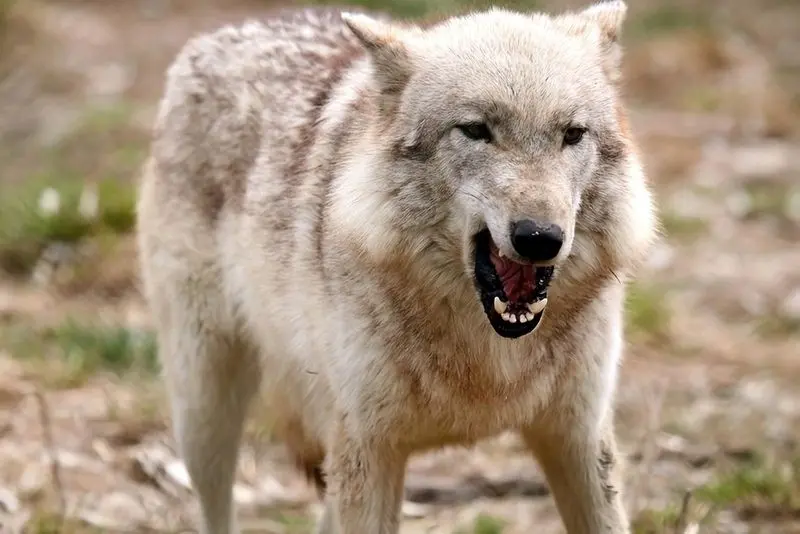 When it comes to treating dog mange, selecting the right over-the-counter (OTC) treatment is crucial. Mange in dogs, caused by mites such as Sarcoptes scabiei and Demodex canis, requires prompt attention to prevent severe skin irritation and infection.
Selecting Effective OTC Treatments
For mild... ↪ Read more
When it comes to treating dog mange, selecting the right over-the-counter (OTC) treatment is crucial. Mange in dogs, caused by mites such as Sarcoptes scabiei and Demodex canis, requires prompt attention to prevent severe skin irritation and infection.
Selecting Effective OTC Treatments
For mild... ↪ Read more Veterinary Drug Handbook (VDH) is the reference veterinarians turn to when they want an independent source of information on the drugs that are used in veterinary medicine today.
-
 Is veterinary Liniment Gel safe for humans?
Is veterinary Liniment Gel safe for humans? -
 Giving Your Cat A Pill
Giving Your Cat A Pill -
 Dog Aggression
Dog Aggression -
 Dogs May Help Boost Infant Health
Dogs May Help Boost Infant Health -
 Animal-Assisted Therapy, Veterinary Social Work, & Social Work With People & Pets in Crisis
Animal-Assisted Therapy, Veterinary Social Work, & Social Work With People & Pets in Crisis -
 On-demand veterinary service gives advice on poorly pets
On-demand veterinary service gives advice on poorly pets -
 Should we stop throwing sticks for dogs?
Should we stop throwing sticks for dogs? -
 What does PU/PD mean in veterinary medicine?
What does PU/PD mean in veterinary medicine? -
 Can breathing in cat hair be harmful?
Can breathing in cat hair be harmful? -
 Bill calls for ban on sales of dogs, cats in Maine pet stores
Bill calls for ban on sales of dogs, cats in Maine pet stores -
 What does DVM stand for in veterinary?
What does DVM stand for in veterinary? -
 Common Meanings Of Cat Behavior
Common Meanings Of Cat Behavior -
 Curing Bad Cat Breath
Curing Bad Cat Breath -
 New Tracking Tool for Pathogen Investigators
New Tracking Tool for Pathogen Investigators -
Can binturongs be kept as pets?
-
 How long do instruments stay sterile after autoclaving veterinary?
How long do instruments stay sterile after autoclaving veterinary?
How do I treat mange in dogs?
 When it comes to treating dog mange, selecting the right over-the-counter (OTC) treatment is crucial. Mange in dogs, caused by mites such as Sarcoptes scabiei and Demodex canis, requires prompt attention to prevent severe skin irritation and infection.
Selecting Effective OTC Treatments
For mild... ↪ Read more
When it comes to treating dog mange, selecting the right over-the-counter (OTC) treatment is crucial. Mange in dogs, caused by mites such as Sarcoptes scabiei and Demodex canis, requires prompt attention to prevent severe skin irritation and infection.
Selecting Effective OTC Treatments
For mild... ↪ Read more Why is my puppy always hungry?
 When a puppy exhibits constant eating behavior, it can be concerning for pet owners. Several factors may contribute to this issue:
Hunger and Growth
Puppies require frequent meals due to their rapid growth and high energy levels. Ensure your puppy is fed a balanced diet specifically designed for... ↪ Read more
When a puppy exhibits constant eating behavior, it can be concerning for pet owners. Several factors may contribute to this issue:
Hunger and Growth
Puppies require frequent meals due to their rapid growth and high energy levels. Ensure your puppy is fed a balanced diet specifically designed for... ↪ Read more Can rabbits be house trained?
 Training Rabbits to Use Litter Boxes
Rabbits can indeed be trained to use litter boxes, making them easier to care for and maintain a clean environment. This training is particularly beneficial for pet owners who want to keep their homes free from rabbit messes.
The process of litter box training... ↪ Read more
Training Rabbits to Use Litter Boxes
Rabbits can indeed be trained to use litter boxes, making them easier to care for and maintain a clean environment. This training is particularly beneficial for pet owners who want to keep their homes free from rabbit messes.
The process of litter box training... ↪ Read more Are snakes dangerous pets?
 Understanding Snake Safety: Are All Snakes Dangerous?
One of the most common misconceptions about snakes is that they are inherently dangerous. While it's true that some snake species possess venom and can be potentially harmful, the vast majority of snake species are not dangerous to... ↪ Read more
Understanding Snake Safety: Are All Snakes Dangerous?
One of the most common misconceptions about snakes is that they are inherently dangerous. While it's true that some snake species possess venom and can be potentially harmful, the vast majority of snake species are not dangerous to... ↪ Read more Can rabbits eat lettuce safely?
 When considering whether it is safe for rabbits to eat lettuce, it's important to understand that while some types of lettuce can be part of a rabbit's diet, others may not be suitable. Romaine and iceberg lettuces contain high levels of lactucarium, which can cause digestive issues such as... ↪ Read more
When considering whether it is safe for rabbits to eat lettuce, it's important to understand that while some types of lettuce can be part of a rabbit's diet, others may not be suitable. Romaine and iceberg lettuces contain high levels of lactucarium, which can cause digestive issues such as... ↪ Read more Why should I spay/neuter my pet?
 Spaying or neutering your pet offers numerous health and behavioral benefits. From a medical standpoint, these procedures can significantly reduce the risk of certain reproductive cancers such as testicular cancer in males and ovarian or uterine cancer in females. Additionally, spayed female dogs... ↪ Read more
Spaying or neutering your pet offers numerous health and behavioral benefits. From a medical standpoint, these procedures can significantly reduce the risk of certain reproductive cancers such as testicular cancer in males and ovarian or uterine cancer in females. Additionally, spayed female dogs... ↪ Read more How do I give my cat a pill?
 Safe Administration of Pills to Your Cat
Administering medication to your feline friend can be a delicate process. Here are some steps to ensure that you do so safely and effectively:
Prepare the Pill: Remove the pill from its packaging and inspect it for any damage or signs of tampering.
Choose... ↪ Read more
Safe Administration of Pills to Your Cat
Administering medication to your feline friend can be a delicate process. Here are some steps to ensure that you do so safely and effectively:
Prepare the Pill: Remove the pill from its packaging and inspect it for any damage or signs of tampering.
Choose... ↪ Read more Why does my cat bring me toys?
 Understanding Why Cats Bring Their Owners Toys
Cats have a unique way of engaging with their human companions through various behaviors, one of which is bringing toys back to their owners. This behavior can be attributed to several factors. Firstly, it reflects a cat's natural hunting instincts. By... ↪ Read more
Understanding Why Cats Bring Their Owners Toys
Cats have a unique way of engaging with their human companions through various behaviors, one of which is bringing toys back to their owners. This behavior can be attributed to several factors. Firstly, it reflects a cat's natural hunting instincts. By... ↪ Read more Can reptiles carry salmonella?
 Yes, pet reptiles can indeed carry Salmonella, a bacterium that poses a significant health risk to humans. Reptiles such as turtles, lizards, snakes, and iguanas are known carriers of this pathogen, even when they appear healthy and clean. According to the Centers for Disease Control and Prevention... ↪ Read more
Yes, pet reptiles can indeed carry Salmonella, a bacterium that poses a significant health risk to humans. Reptiles such as turtles, lizards, snakes, and iguanas are known carriers of this pathogen, even when they appear healthy and clean. According to the Centers for Disease Control and Prevention... ↪ Read more Why do dogs have wet noses?
 The Mysterious Wet Nose of Dogs
Dogs are known for their distinctive wet noses, a feature that has intrigued many pet owners. This moisture serves several important functions in a dog's physiology and behavior.
Firstly, the moisture on a dog’s nose helps regulate its body temperature. As dogs... ↪ Read more
The Mysterious Wet Nose of Dogs
Dogs are known for their distinctive wet noses, a feature that has intrigued many pet owners. This moisture serves several important functions in a dog's physiology and behavior.
Firstly, the moisture on a dog’s nose helps regulate its body temperature. As dogs... ↪ Read more Should I let my dog eat grass?
 Many dog owners have observed their pets consuming grass and wondered if this behavior is typical or concerning. According to veterinary experts, eating grass is a common and generally harmless habit among canines.
Understanding Canine Behavior
Dogs may consume grass for various reasons. Some... ↪ Read more
Many dog owners have observed their pets consuming grass and wondered if this behavior is typical or concerning. According to veterinary experts, eating grass is a common and generally harmless habit among canines.
Understanding Canine Behavior
Dogs may consume grass for various reasons. Some... ↪ Read more What does a vet do for dogs?
 Essential Vaccinations for Your Dog
Maintaining your dog's health through regular vaccinations is crucial. These shots protect against various diseases that can be serious or even fatal. Here are some essential vaccinations recommended by veterinarians:
Distemper: Protects against a highly... ↪ Read more
Essential Vaccinations for Your Dog
Maintaining your dog's health through regular vaccinations is crucial. These shots protect against various diseases that can be serious or even fatal. Here are some essential vaccinations recommended by veterinarians:
Distemper: Protects against a highly... ↪ Read more Popular Diagnoses
Packed cell volume (PCV, hematocrit) Reflex ovulator Mucolytic Microfilaricide Bronchodilator Hematocrit Glucocorticoid Monoamine oxidase inhibitor (MAOI) ↪ All veterinary diagnoseOther Diagnoses
mL Modified live vaccine Monovalent vaccine Monoamine oxidase inhibitor (MAOI) Mucolytic Mucopolysaccharide Mucosa Mucous membranesPopular Veterinary Clinics
VCA Welborn Animal Hospital, 7860 Washington Avenue Kansas City, KS 66112 USA MedVet Columbus, 300 East Wilson Bridge Road, Worthington, OH Rutland Veterinary Clinic & Surgical Center, 90 East Pittsford Road, Rutland, VT VCA Paradise Valley Emergency Animal Hospital, 6969 East Shea Boulevard Suite 150 Scottsdale, AZ 85254 USA Connecticut Veterinary Center & Pet ER, 470 Oakwood Ave West Hartford, CT 06110 USA Norway Veterinary Hospital, 10 Main St P.O. Box 273 Norway, ME 04268 USA Craig Road Animal Hospital, 5051 West Craig Road, Las Vegas, NV Abri Veterinary Hospital Inc, 1449 Trademart Boulevard Winston-Salem, NC 27127 USA ↪ All veterinary clinicsOther Veterinary Clinics
Bear River Veterinary Clinic, 619 Almy Road 107 Evanston, WY 82930 USA Cheyenne Pet Clinic, 3740 East Lincolnway Cheyenne, WY 82001 USA Spring Creek Animal Hospital, 1035 West Broadway P.O. Box 1161 Jackson, WY 83001 USA Airdrie Animal Health Centre, 1105-35 MacKenzie Way SW, Airdrie, AB Animal Clinic, 104-820 10 Street SW, Calgary, AB Animal Clinic West, 921 37th Street SW CALGARY, AB T3C 1S4 Canada Bow Bottom Veterinary Hospital & Boarding Centre, 1186 137 Avenue SE, Calgary, AB Castledowns Animal Hospital, 10223 164 Avenue NW, Edmonton, ABPopular Drugs
DOXYLAMINE SUCCINATE Doses - PENICILLIN V POTASSIUM Doses - METHYLPREDNISOLONE, METHYLPREDNISOLONE ACETATE, METHYLPREDNISOLONE SODIUM SUCCINATE ACEPROMAZINE MALEATE Doses - PREDNISOLONE, PREDNISOLONE SODIUM SUCCINATE, PREDNISOLONE ACETATE, PREDNISONE Doses - FURAZOLIDONE Doses - FERROUS SULFATE Doses - LEVAMISOLE ↪ All veterinary drugOther Drugs
Vitamin C INJECTABLE SOLUTION Bio-Groom Lido-Med Anti-Itch Spray Net 4 Fl Oz (118 ml) BIO-GROOM® EAR-CARE™ NON OILY-NON STICKY EAR CLEANER Bio-GroomLido-Med Anti-Itch Gel Bio-Groom Ear-Care Ear Cleaner Pads Sulmet® (sulfamethazine) Oblets® 2.5 g OxyCide AMS Peroxide Sanitizing Teat Dip ATROPINE SULFATE 1/120 INJECTABLE SOLUTIONPopular Terms
Subalbinotic Steatis Uteroverdin Paradoxical CSF acidosis Figure of 8 suture pattern Nerve root signature Ovariohysterectomy Abrev OVH Signalment ↪ All veterinary termOther Terms
FEVER RINGS FILLY FINE PUNCHED FIRE TONGS FISHER FLARE FLEX FLEXIONveterinary-help.com
© 2011-2026 Veterinary Clinics, Diagnoses, Terms and Drug Handbook Online

